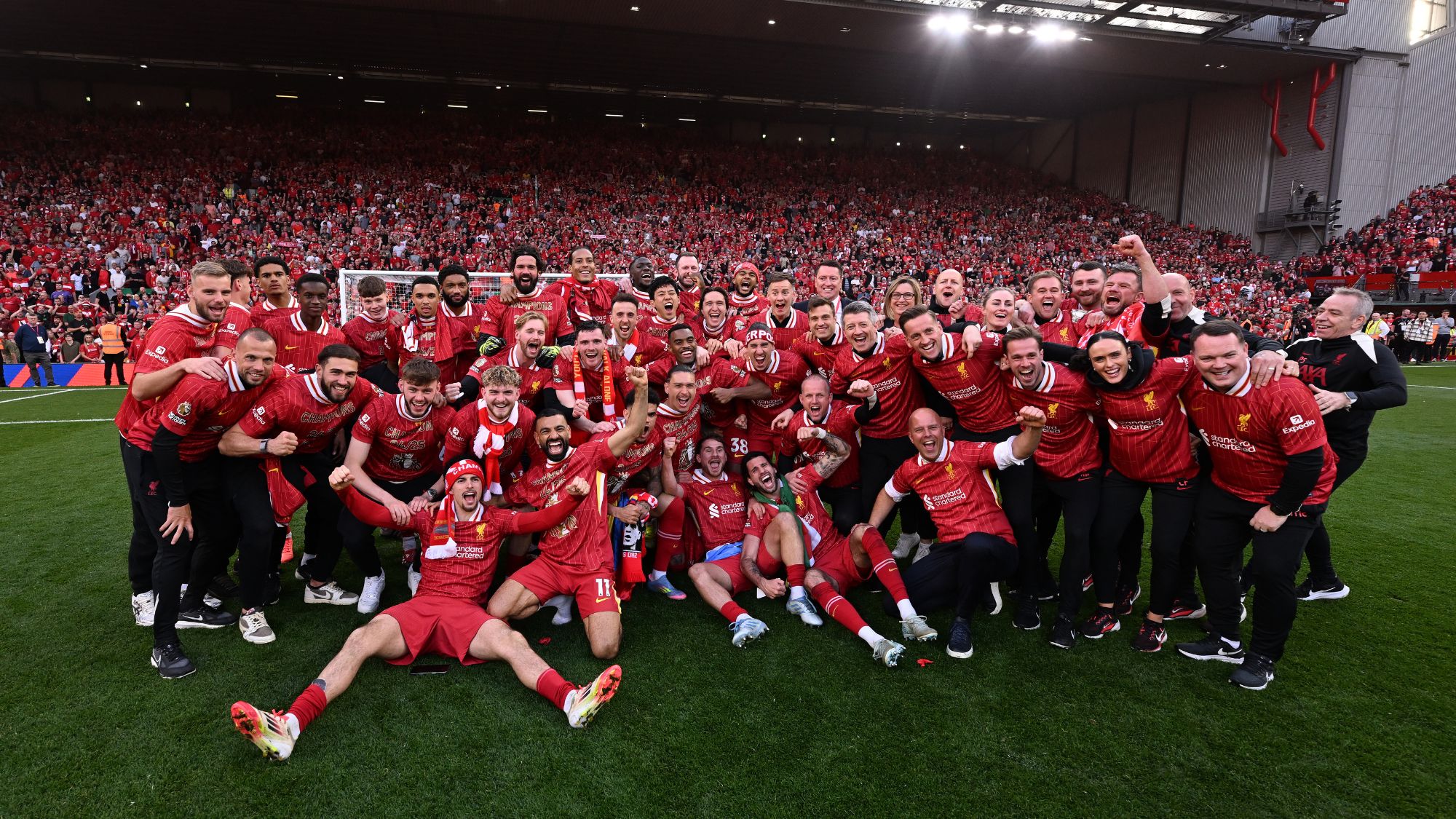Brexit vs. Premier League: FA has drastic plans for EU exit
Football Association aims to reduce number of overseas footballers in top-flight squads

A free daily email with the biggest news stories of the day – and the best features from TheWeek.com
You are now subscribed
Your newsletter sign-up was successful
Brexit will be a game changer for the Premier League, with the Football Association (FA) determined to use Britain’s exit from the European Union (EU) as an opportunity to reduce the number of overseas players in top-flight squads.
According to a report in The Times, Premier League clubs “will be obliged to ensure that at least half of their first-team squads are made up of ‘homegrown’ players under drastic plans put forward by the FA to deal with Brexit”.
From 17 to 12
The Week
Escape your echo chamber. Get the facts behind the news, plus analysis from multiple perspectives.

Sign up for The Week's Free Newsletters
From our morning news briefing to a weekly Good News Newsletter, get the best of The Week delivered directly to your inbox.
From our morning news briefing to a weekly Good News Newsletter, get the best of The Week delivered directly to your inbox.
Under existing rules, Premier League clubs are allowed to field up to 17 overseas players in their 25-man squad, but the FA wants that cut to 12, in a proposal that will be put to the 20 clubs later this week.
That would be a radical move for the majority of clubs, with 13 of the Premier League’s 20 clubs currently featuring more than a dozen overseas players in their first-team squads this season.
Five clubs, including league leaders Manchester City and Tottenham, have the maximum number of overseas players, and four more, including Chelsea and Liverpool, have 16.
Only seven clubs would not be affected by the new plans: Bournemouth, Burnley, Cardiff, Everton, Southampton, Wolves and Crystal Palace.
A free daily email with the biggest news stories of the day – and the best features from TheWeek.com
Nightmare of a Brexit no-deal
Most commentators expect the majority of clubs, led by the likes of Manchester City and Manchester United, to oppose the plans to trim their squads of overseas players.
But the Times says that if the clubs don’t agree to the reduction, “they could face a nightmare ‘no-deal’ scenario in which all EU players would have to fulfil the same criteria that non-EU players do now in order to get a work permit”.
Aware of the probable reluctance of clubs to agree to their proposal, the FA intends to offer them a sweetener in the shape of a “governing body endorsement” (GBE).
This would be an agreement whereby a select number of top stars offered contracts with Premier League clubs get work permits, so that the marquee foreign players would still come to England. This would maintain the league’s status as the top domestic championship, while also increasing the number of home-grown players rather than drafting in more mediocre players from abroad.
Since Britain voted to leave the EU, the Premier League and the FA have differed on how to respond, with the former demanding that all overseas players receive work permits regardless of the current criteria such as the players’ number of international caps, their country’s Fifa ranking, and the transfer fee.
Transition period
For years, there have been noises from the FA about the need to increase the number of English players in the top tier of the domestic game. Yet The Times says that as recently as two weekends ago, only 62 of 220 Premier League players in action were qualified to represent the Three Lions.
If the clubs do agree to the proposal, there will be transition period until the end of 2020. The UK government has reportedly been briefed on the idea and will sanction the new rules if both parties are agreed on the framework.
“We recognise the need for sports, including football, to continue to access talent from the EU and globally and are in discussions with sports bodies about this,” a government spokesperson told the paper.
The sensitive issue will be discussed in full on Thursday at a meeting of club chairs in London.
-
 Amorim follows Maresca out of Premier League after ‘awful’ season
Amorim follows Maresca out of Premier League after ‘awful’ seasonIn the Spotlight Manchester United head coach sacked after dismal results and outburst against leadership, echoing comments by Chelsea boss when he quit last week
-
 How do new stadiums affect football clubs?
How do new stadiums affect football clubs?In the Spotlight Everton's decision to move its men's team out of Goodison Park could be a catalyst for vital change, but there are cautionary tales too
-
 Liverpool's Anfield redemption: how did they do it?
Liverpool's Anfield redemption: how did they do it?Talking Point Arne Slot's blueprint and standout player performances guide the Reds to record 20th league title
-
 Where are all the English football managers?
Where are all the English football managers?Talking Point Eddie Howe's Carabao Cup success underlines absence of homegrown coaching talent in the Premier League
-
 New Trafford: can it fix Manchester United's footballing problems?
New Trafford: can it fix Manchester United's footballing problems?Talking Point Plan for £2 billion stadium despite staff job losses and lack of success on the pitch
-
 The Premier League's spending cap: levelling the playing field?
The Premier League's spending cap: levelling the playing field?Talking Point Top clubs oppose plans to link spending to income of lowest-earning club, but rule could prevent success gap from widening
-
 Is a new English football regulator an own goal for the game?
Is a new English football regulator an own goal for the game?Talking Point PM hails 'historic moment for football fans' but West Ham owner warns it could 'ruin' Premier League
-
 2023-2024 Premier League predictions: champions, relegation and golden boot
2023-2024 Premier League predictions: champions, relegation and golden bootfeature A look at the top flight talking points and pundit picks for the new season


